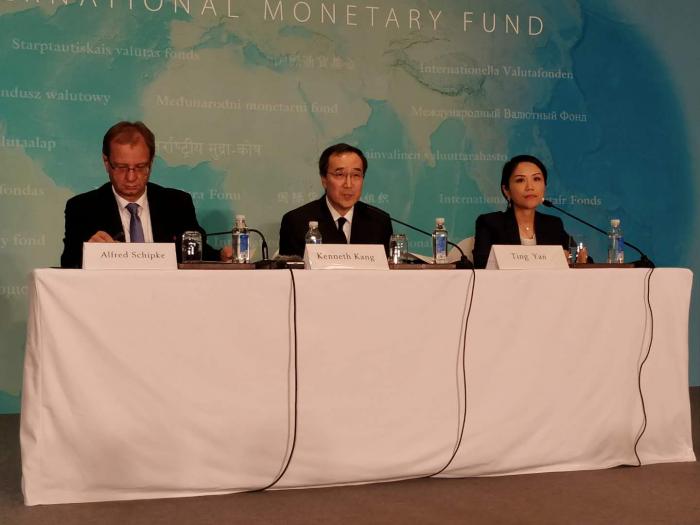China's economy is expected to grow by 6.2 percent this year and 6 percent in 2020, according to the estimates released yesterday by the International Monetary Fund. The IMF also said that growth in China stabilized earlier in the year.
Kenneth Kang is Deputy Director of IMF's Asia & Pacific Department. He suggests that China's policy makers continue with the economy's structural reforms, including reforming state-owned enterprises and the opening up of the service sector.
"Liberalizing product and labor markets and further opening up the service sector would increase competition and flexibility and allow China to benefit further from globalization. SOE reform should continue and help achieve competitive neutrality by hardening SOE budget constraints and removing their implicit guarantees. Managing China's increasingly systemic and complex economy requires modernizing policy frameworks towards more market-based and transparent frameworks."

He also says that despite the recent tariff hikes by the United States, the stimulus measures that China has announced so far this year are sufficient to sustain economic growth through 2019 and 2020. However, he also warned that uncertainty around the trade tensions remain high.
"No additional policy easing is needed, provided there are no further increases in tariffs or a significant slowdown in economic growth. Exchange rate flexibility should increase to facilitate adjustment to the new external environment. However, if trade tensions escalate further, putting at risk economic and financial stability, some additional policy easing would be warranted. For example, a fiscal expansion, which is centrally financed, pro-rebalancing, and targeted to low-income households, could be used to stabilize the economy."
Kang has urged China and the United States to resolve their trade issues by coming to an agreement that supports the international trading system and avoids the outcome of managed trade.
"As we have mentioned many times before, everybody loses in a protracted trade war. If trade is threatened, if trade is damaged, growth will suffer. For these reasons, we encourage all parties involved to work together for a durable resolution that supports an open, stable, transparent rules-based international trade system. This is in everyone's interest, including China of course."
The IMF team will deliver its findings to the IMF's Executive Board for further deliberations.
Its statement comes as the World Bank on Tuesday lowered its global growth forecast for the year to 2.6 percent, while maintaining its growth projection for China at 6.2 percent.
For CRI, this is Li Yi.












